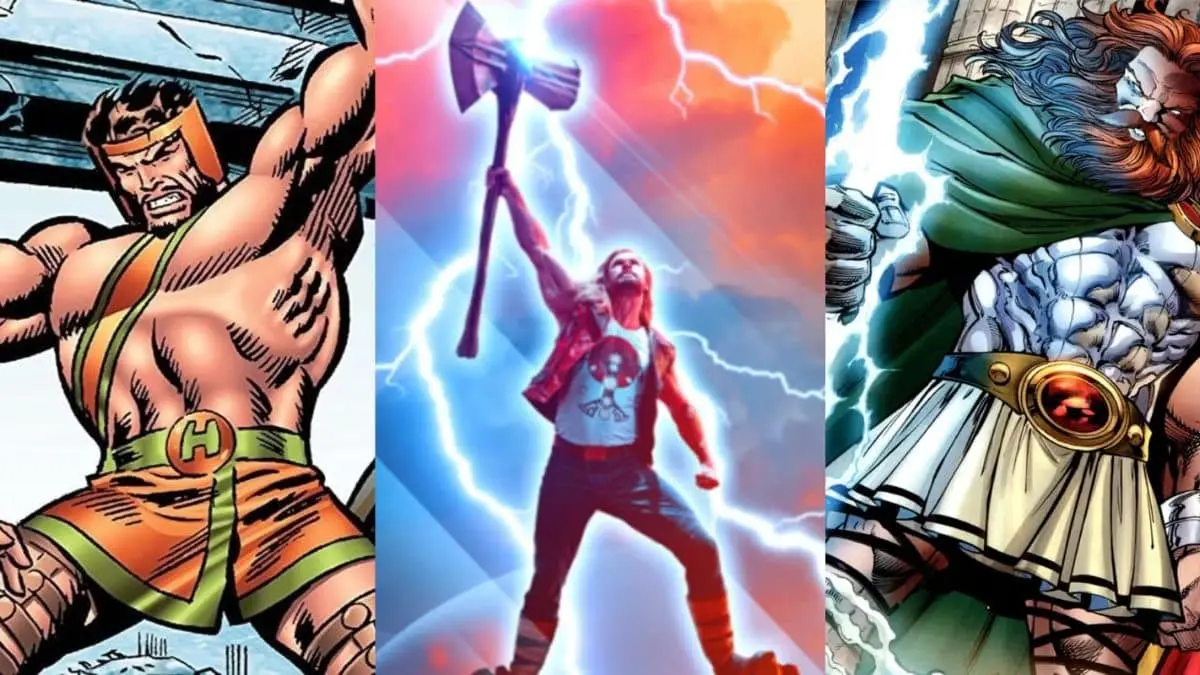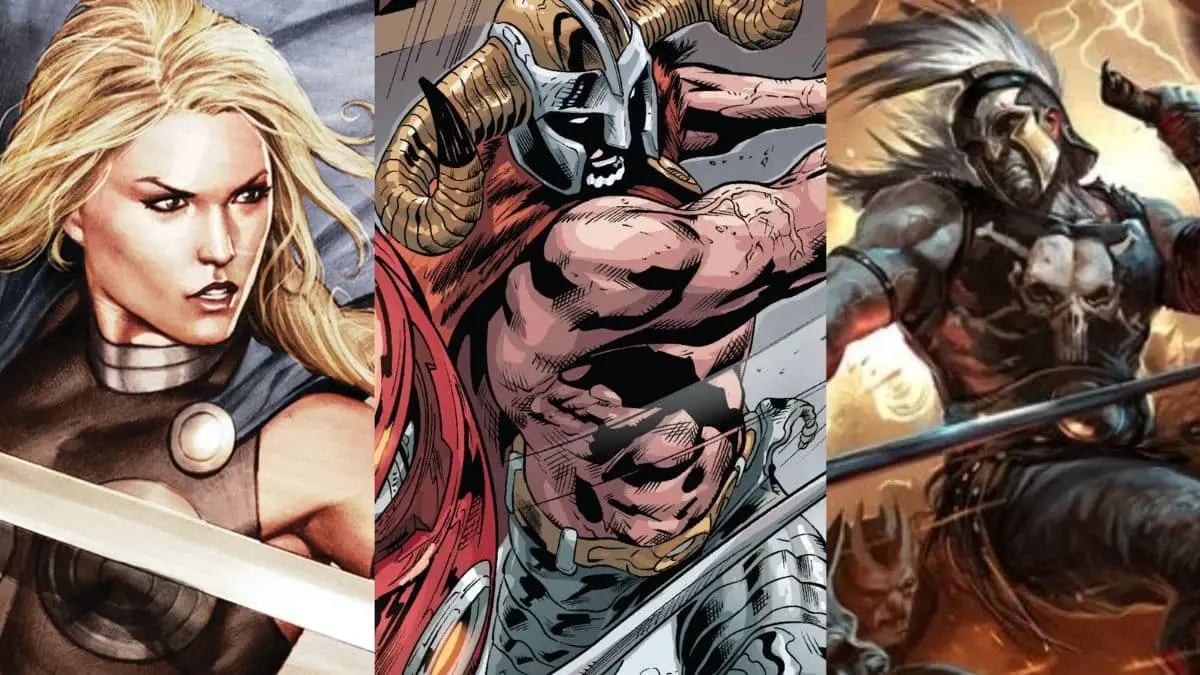When you pick up a comic book, you expect thrilling adventures, larger-than-life heroes, and formidable villains. But beneath the superpowers and spandex, there lies a rich tapestry of storytelling elements—one of the most prominent being mythology. Whether it’s the ancient tales of gods or modern reimaginings of legendary heroes, mythology has become an indispensable part of comic book lore. Let’s dive into how mythology shapes comic book universes and explore some fascinating examples along the way.
The Role of Mythology in Comic Book Universes
Mythology as a Foundation for Heroes and Villains
Many comic book characters draw directly from mythological figures, either as reinterpretations or as wholly new creations inspired by classic myths. This connection adds depth and familiarity to their Stories, making them resonate across cultures and generations.
Take Thor, for instance. The Norse God of Thunder, complete with his enchanted hammer Mjolnir, has been a staple of marvel Comics since the 1960s. While Marvel’s Thor retains key elements from Norse mythology, such as his Asgardian origins and relationship with Loki, the character’s journey also reflects modern themes like personal growth and the burden of leadership. This blend of ancient mythology and contemporary storytelling has made Thor one of Marvel’s most iconic heroes.
On the flip side, mythology is often used to craft formidable villains. Consider Ares, the Greek God of War, who appears in both DC and Marvel comics. In the DC universe, Ares is a recurring foe for Wonder Woman, embodying the chaos and destruction of war. His mythological roots make him a compelling antagonist, as he represents an eternal conflict that transcends time.
Building Entire Universes on Mythological Frameworks
Some comic book universes don’t just borrow from mythology—they’re built around it. DC Comics’ Wonder Woman is a prime example. Her origin story is deeply intertwined with Greek mythology, from her creation by the gods to her battles against mythological creatures and deities. Wonder Woman’s ties to mythology make her stories feel timeless, blending ancient lore with modern themes of justice and equality.
Similarly, Marvel’s cosmic entities, such as Eternals and Celestials, echo mythological concepts of gods and creation myths. The Eternals, created by legendary artist and writer Jack Kirby, are essentially immortal beings tasked with protecting humanity. Their stories explore themes of divinity, mortality, and the age-old question: What does it mean to be human?
Mythology as a Mirror for Modern Issues
One of the most fascinating aspects of mythology in comic books is how it’s used to address contemporary issues. By reinterpreting ancient myths, writers can explore modern concerns in a way that feels universal and relatable.
For example, Neil Gaiman’s The Sandman series incorporates mythology from various cultures, including Greek, Norse, and Egyptian traditions. Through characters like Dream (Morpheus), Death, and Loki, Gaiman examines themes such as the nature of storytelling, personal responsibility, and the inevitability of change. The series’ mythological elements provide a rich backdrop for these philosophical explorations, making it both timeless and profoundly relevant.

Cross-Cultural Mythological Inspirations
Mythology isn’t limited to Western traditions. Comic book creators often draw from diverse cultural myths, enriching their stories with unique perspectives.
One standout example is DC’s Aquaman, whose lore is heavily inspired by Atlantean myths. While Atlantis itself originates from ancient Greek legend, Aquaman’s stories incorporate elements from global maritime myths, creating a layered narrative that celebrates humanity’s fascination with the ocean.
In recent years, there’s been a growing representation of non-Western mythologies in comics. For instance, Marvel’s Black Panther incorporates elements of African mythology and folklore. The Wakandan deity Bast, inspired by the Egyptian cat goddess Bastet, plays a significant role in T’Challa’s story, symbolizing his spiritual connection to his ancestors and his people. These elements not only enhance the story but also celebrate African heritage and mythology.
Mythology and the Superhero Archetype
At its core, the superhero archetype is inherently mythological. Heroes like Superman, Batman, and Spider-Man echo the classic hero’s journey found in myths across cultures. From facing insurmountable odds to overcoming personal flaws, these characters embody the same values and struggles as ancient heroes like Hercules, Odysseus, and Beowulf.
Superman, often regarded as the ultimate superhero, can be seen as a modern-day Moses or even a Christ-like figure. His origin story—a child sent away from a dying world to save another—mirrors countless mythological tales of divine intervention and destiny.
The Evolution of Mythology in Comics
As comic books have evolved, so too has their use of mythology. Early superhero stories often used mythology as a straightforward source of inspiration, but modern comics have taken a more nuanced approach. Writers now delve into the psychological and moral complexities of mythological themes, using them to craft layered, thought-provoking narratives.
A great example of this evolution is DC’s The Dark Knight Returns by Frank Miller. While not overtly mythological, the story casts Batman as a near-mythic figure, exploring themes of legacy, sacrifice, and redemption. This approach elevates the character from a mere vigilante to a legendary icon.
Why Mythology Matters in Comics
So, why does mythology play such a significant role in comic books? The answer lies in its universal appeal. Myths are timeless stories that speak to fundamental human experiences: love, loss, heroism, and the struggle between good and evil. By weaving these elements into their narratives, comic book creators tap into something primal and enduring, ensuring their stories remain relevant across generations.
Moreover, mythology provides a sense of scale and wonder that perfectly complements the fantastical nature of comic books. Whether it’s a battle between gods or a hero’s journey of self-discovery, mythology adds layers of meaning and richness to the medium.
Also Read: The Role of Diversity in Modern Comics









